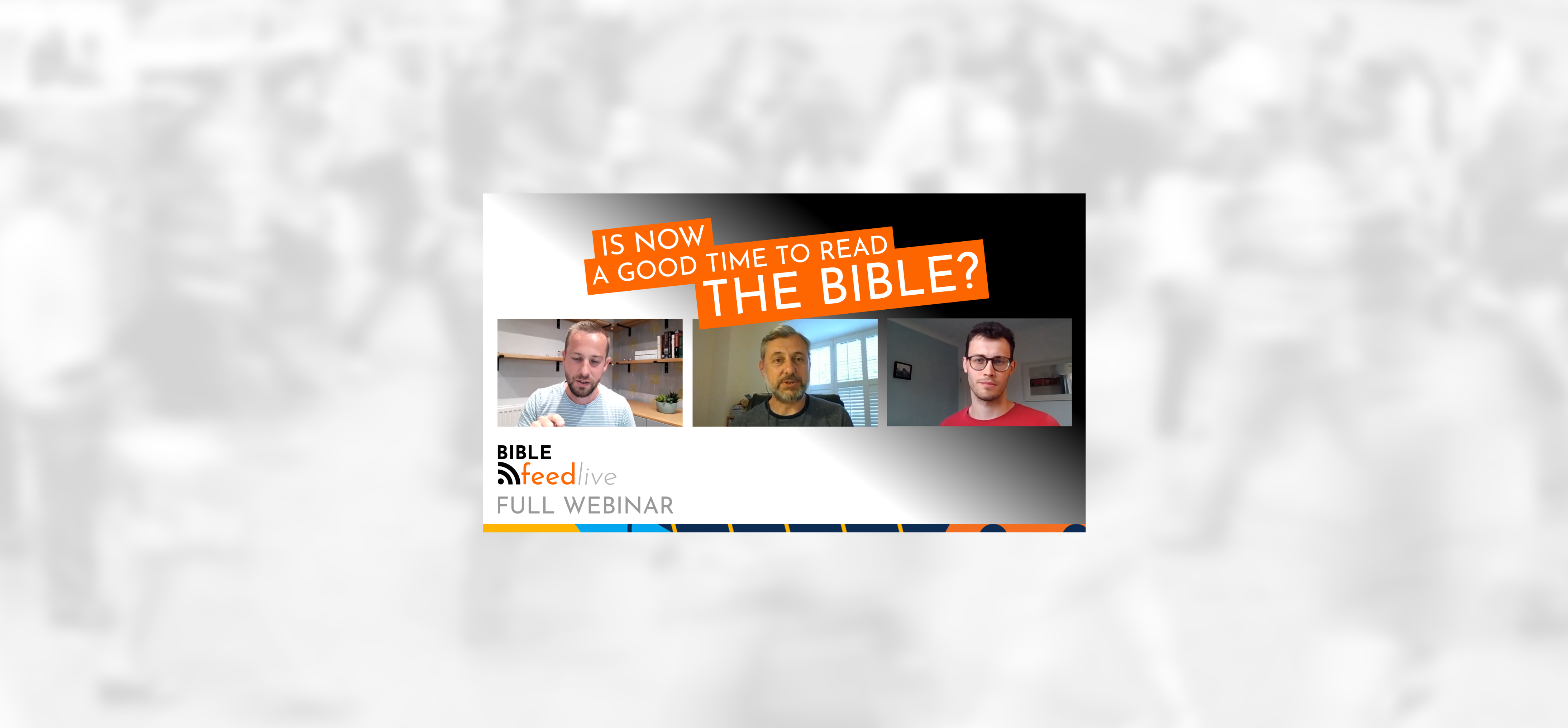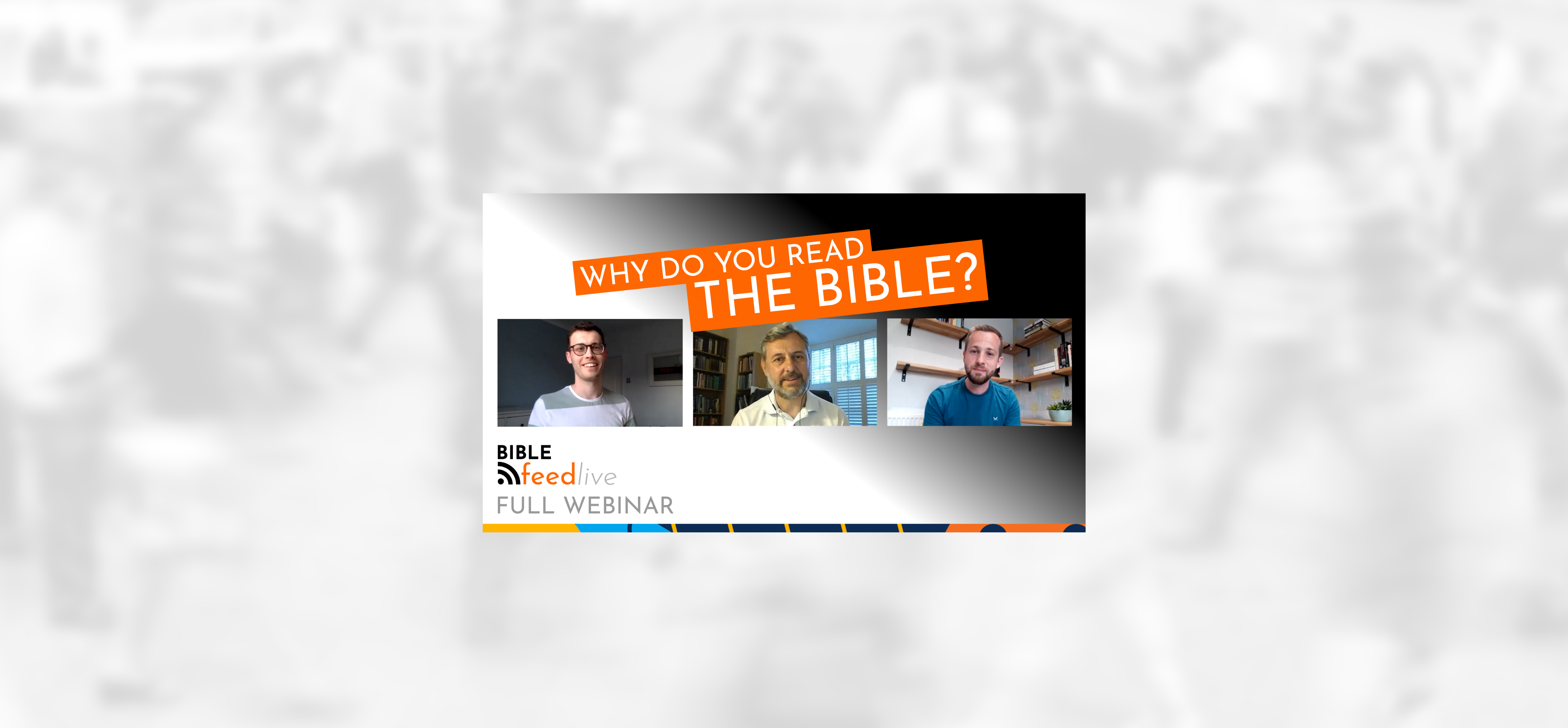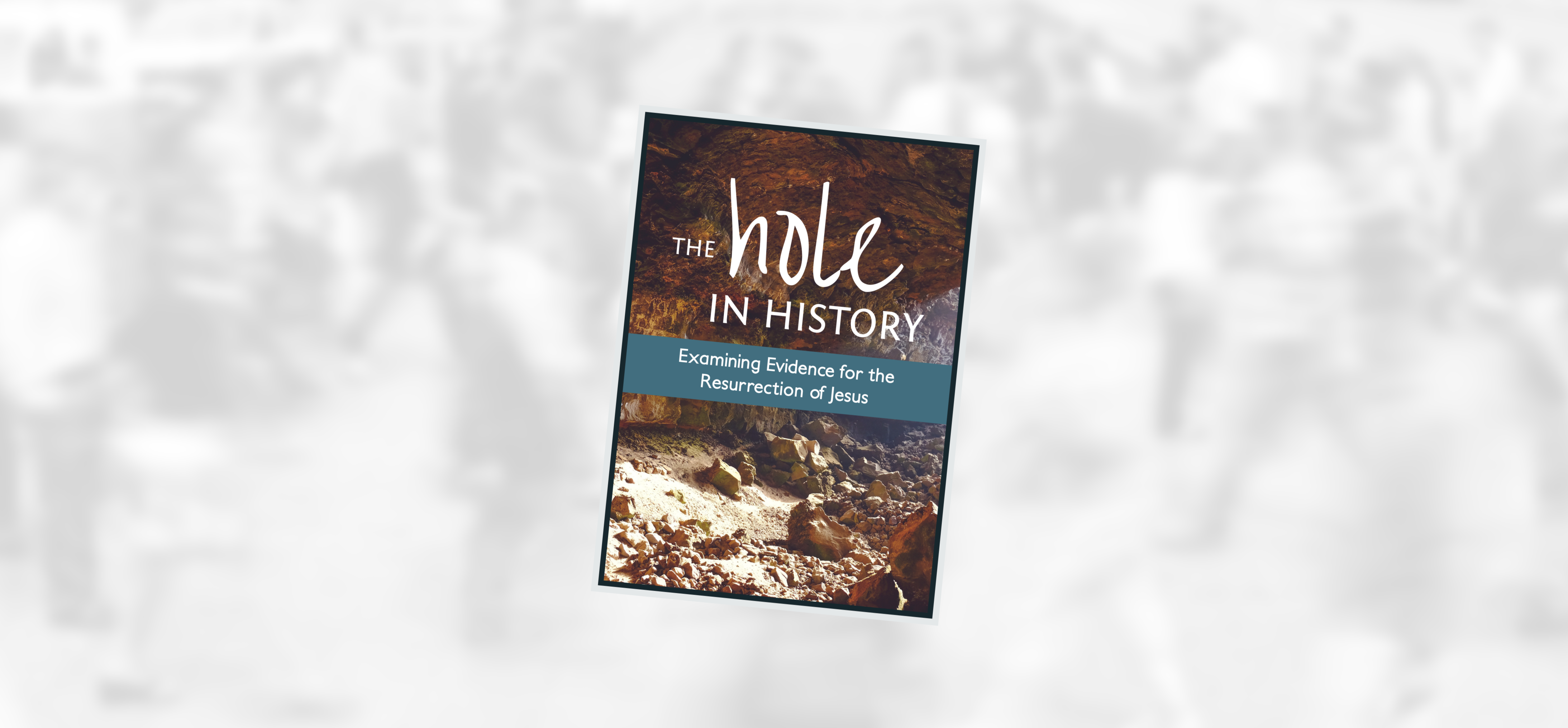What motivates us to read the Bible now? Is it relevant for today's modern world? And where might be a good place to start? We had a fascinating Bible Feed Live conversation that covered topics ranging from how the Covid-19 crisis has prompted displays of both human selflessness and human selfishness to the depiction of human brutality in the event of the crucifixion of Jesus. We talked about how the Bible presents solutions to the problem of mortality, wrestled with the fact that God is however largely hidden, and gave a good number of tips on where to start along with some resources to help you.
Why is it worth reading the Bible? What should you expect to learn? What is its purpose? Catch up on the conversation as we explore all these questions and more. We talk about a broad range of things, from the relevance of a random list of sacrifices in the book of Numbers to the non-superhero features of Biblical characters and why the Old Testament helps us understand Jesus better.
Laurence Davenport and Dan Weatherall continue delving into the gospel of Matthew. The focus this time is how well structured the book is around major themes that are developed throughout the book. Jesus is presented as someone with authority and he is given that curious name, Immanuel. What does that mean? And how would the first readers of Matthew have understood God to be with them?
We begin a new series in which we explore the deep questions around the relationship between God and Jesus, the Son of God. In this episode Josh Dean and Paul Davenport look at how Unitarians and Trinitarians both look at the same scriptural ‘raw materials’ but come to different conclusions. Why is that? How should we evaluate whether one view is more appropriate than the other? Are they both truly Christian perspectives?
Famous names and outsider characters – they’re all in the family tree of Jesus right at the beginning of Matthew’s Gospel! Laurence Davenport and Dan Weatherall start a series of episodes that explores this book in greater detail to discover the real Jesus. Listen in to find out why some apparently dubious (but actually faithful) women feature in the opening verses of this Gospel and what that helps us to discover about Jesus!
Becky Lewis discusses with Paul Davenport whether it’s right to think of God as distant and unfeeling, as is often the portrayal in popular culture. By drawing from the Bible from the creation narrative through to how Jesus treated people and on through to the final chapters of Revelation, we find God revealed as deeply invested in seeking close relationships with people and indeed connecting people together in a family.
Jesus taught many things that have become so common place in the western world that it’s so easy to ignore them. One of those things was a prayer that he gave to his followers to use.
This episode is all about the new book “Founding a Faith” by Tom Gaston. Dan Weatherall asks Tom about some of the concepts explored in the book, such as whether we should build our faith like a tower with a foundation or as a flexible web of interconnected ideas – which is more resilient?
This conversation asks another big question – what is human nature really like? Dan Weatherall and Stephen Blake, a professional counsellor, explore this topic and find that, although the Bible starts with the ideal of humans reflecting God’s image, it more often paints a picture of struggle and failure. Why is that and can anything be done about it?
The Hole in History is a short book that systematically goes through the evidence for the resurrection of Jesus in a clear and accessible way.





